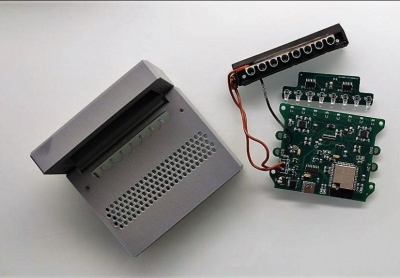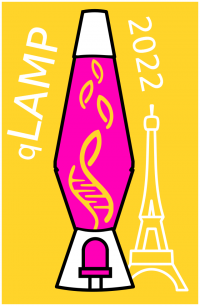GlobalLAMP-Yaoundé
Collaborative Development of Isothermal Amplification & Devices
September 24. - October 5., 2022 Yaoundé Cameroon
Scope of the Project
This is the second phase of the project. For the first phase we met in Paris at the Learning Planet Institute [GlobalLAMP-Paris] to develop ideas, device prototypes and made first comparative measurements. In this second phase we are working on producing the devices in medium-scale and focus more on the applicability of the developed equipment in a real-world scenario. Two devices, the open source qLAMP - developed by Francisco Quero and the qPocketPCR developed by Urs Gaudenz at GaudiLabs have been developed further to a near production ready level. We will now establish a production chain to build the first batch of devices and the necessary reaction mixes that later on will be used to test the system in the field. To get better insight into potential applications and the use in a real world scenario we gathered at MboaLab in Yaoundé, Cameroon to test systems and meet local experts from the field.
Devices
 The openQLAMP machine was developped further with many important technical improvements such as flexible PCB heater with several heating sections and new SMD excitation LED board for efficient production. Also the software part was improved based on experiences from first tests (eg. pre-heating of the heated lid etc).
The openQLAMP machine was developped further with many important technical improvements such as flexible PCB heater with several heating sections and new SMD excitation LED board for efficient production. Also the software part was improved based on experiences from first tests (eg. pre-heating of the heated lid etc).
Quantitative real-time DNA amplification is at the heart of either diagnosing infectious disease or any section of biology research. Use of these devices has been limited due its cost and availability, therefore, refuting to elaborate and end-point methods like gel-electrophoresis. This project will change accessibility and affordability of this device to specially low-income countries either for POC or teaching purposes. Furthermore, the core of the project includes researchers and collaborators from diverse geographical backgrounds, professional expertise and socioeconomic origins, either at the development stage or at the end-user level at the next phases.
